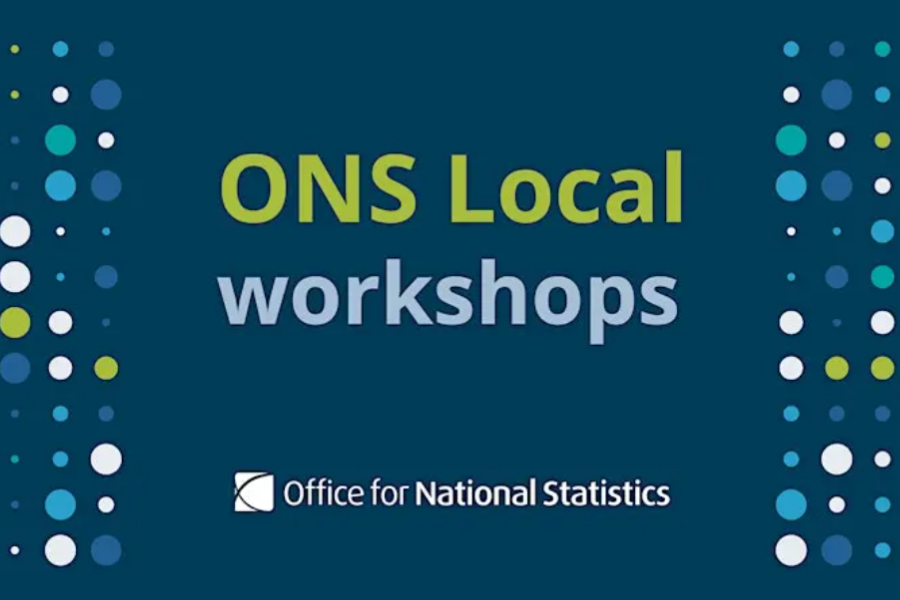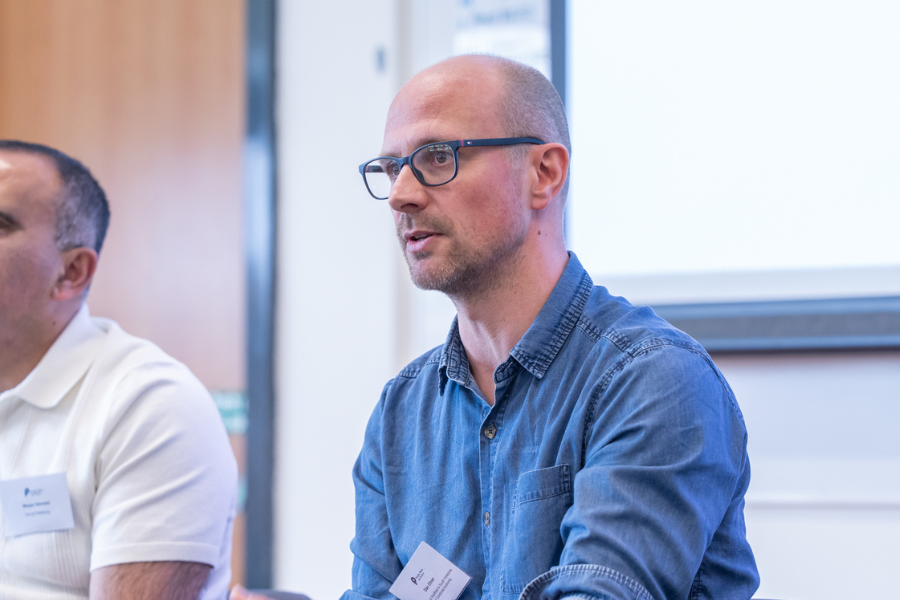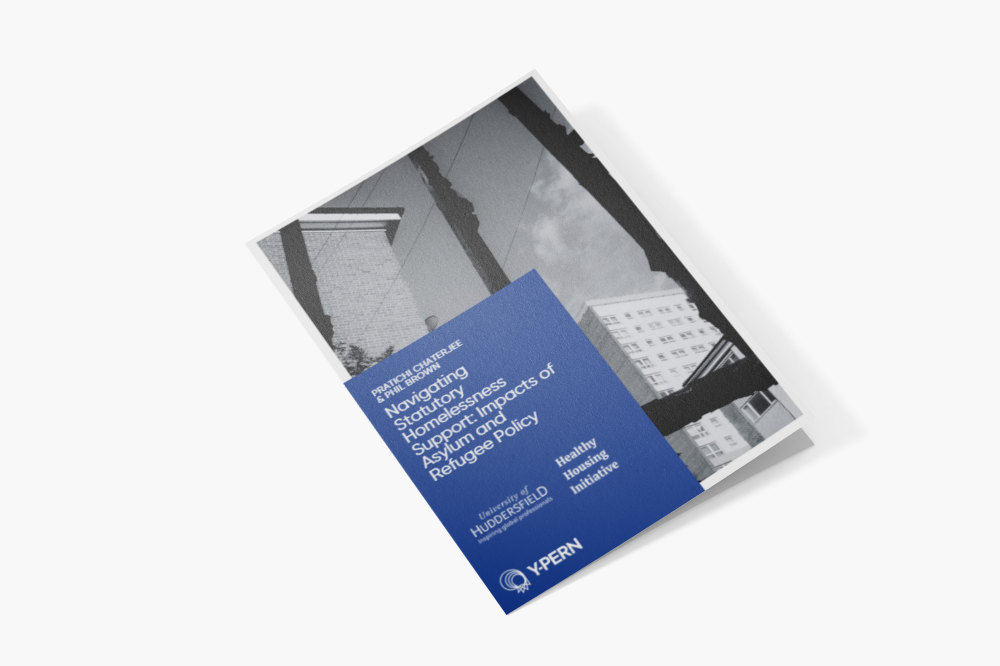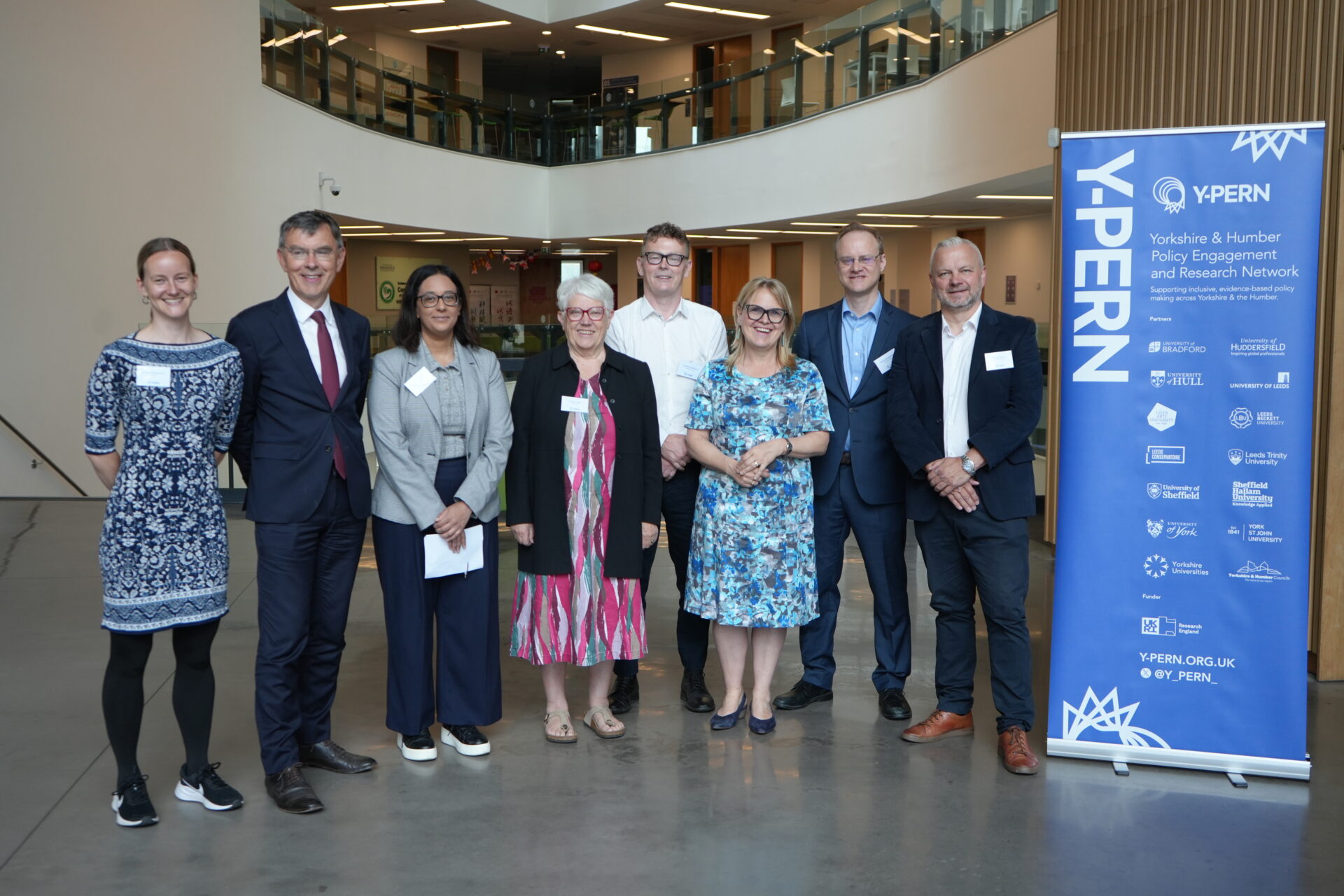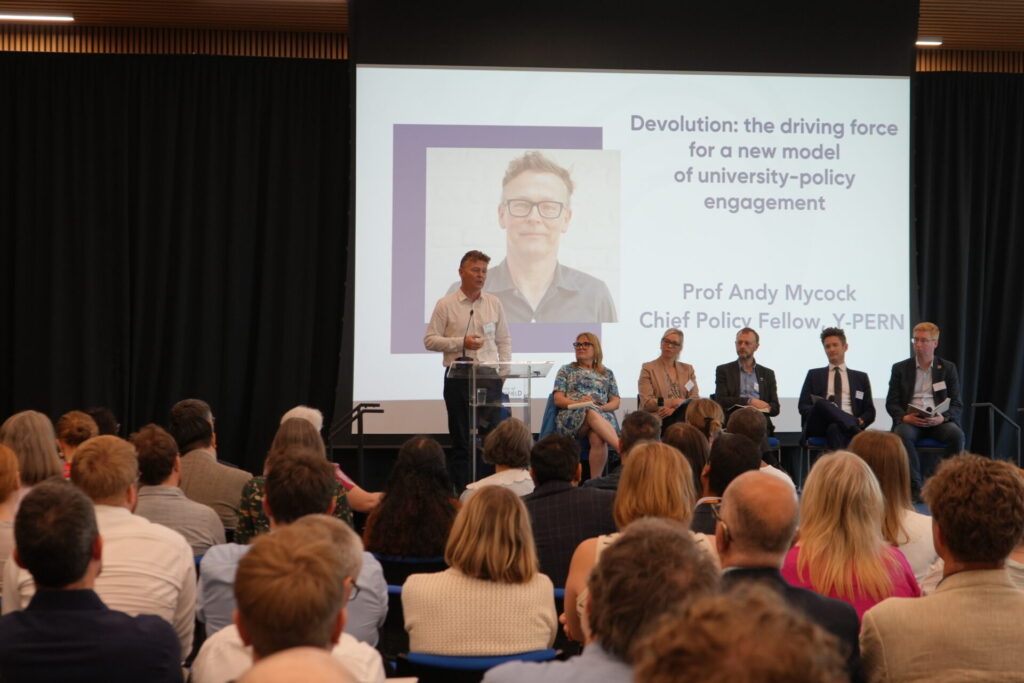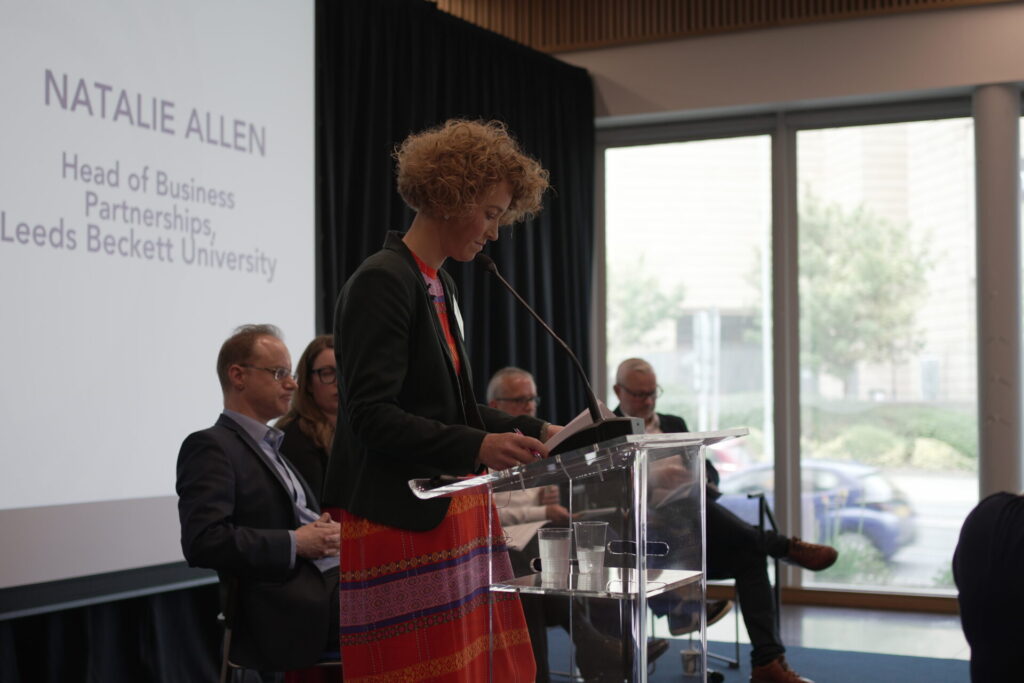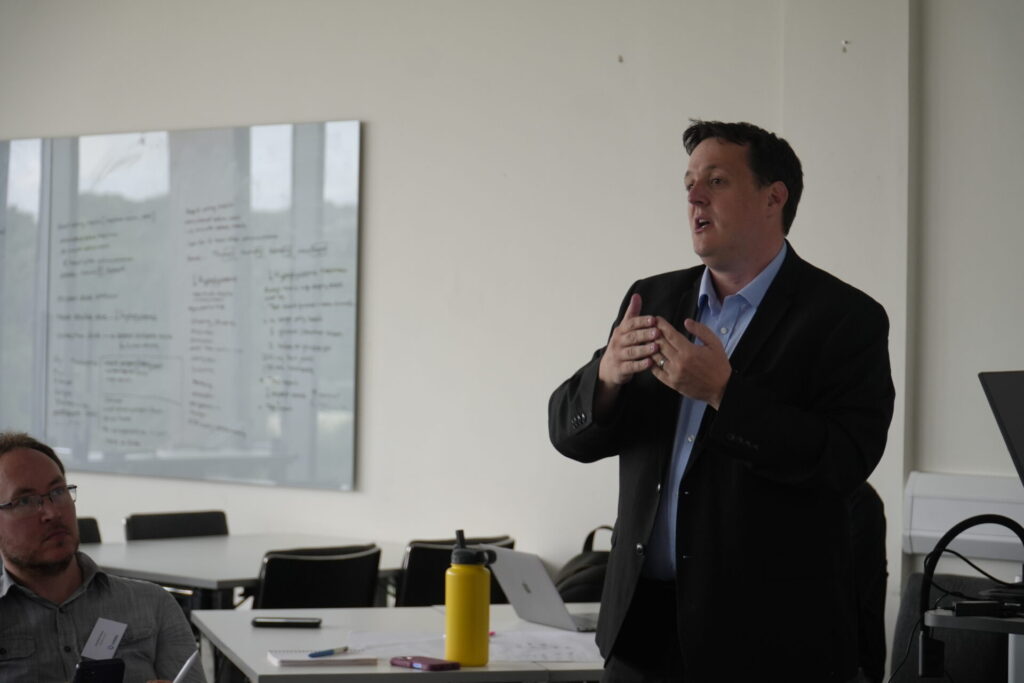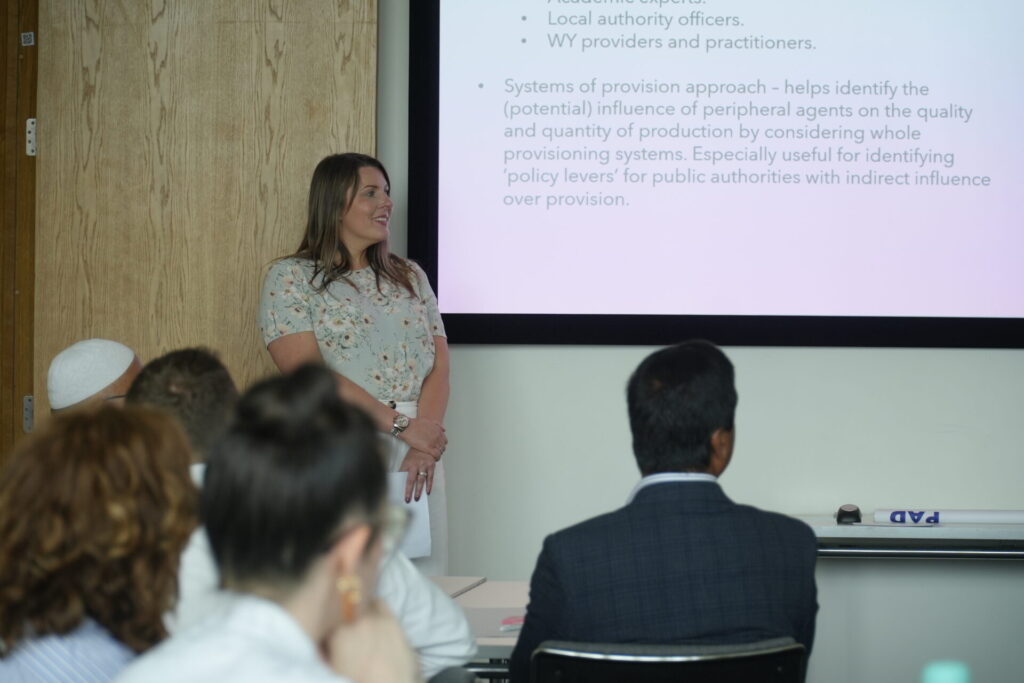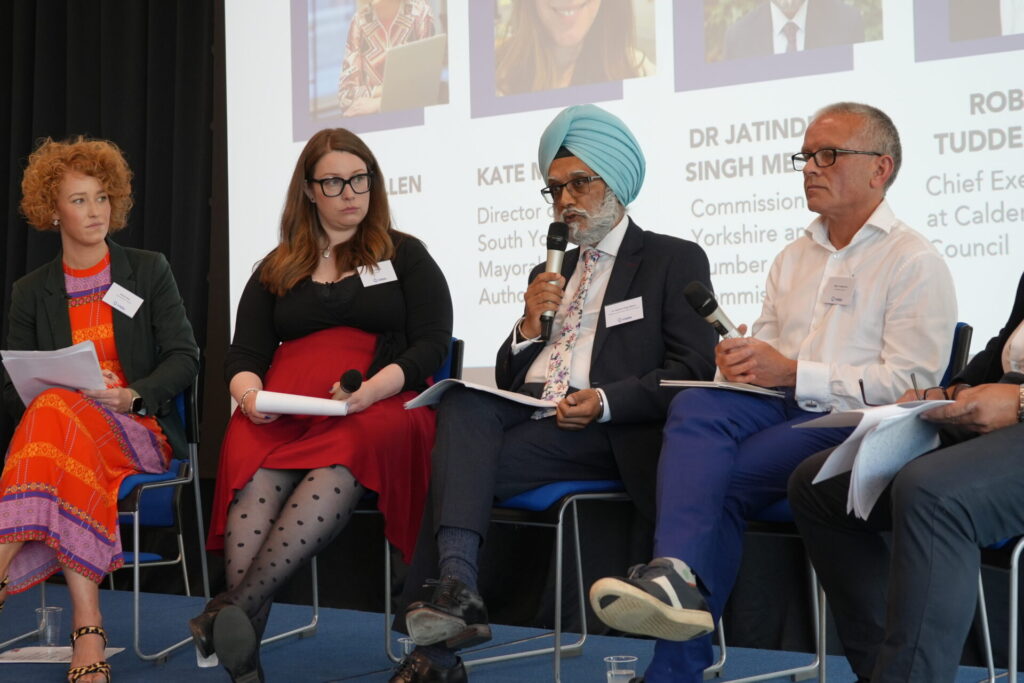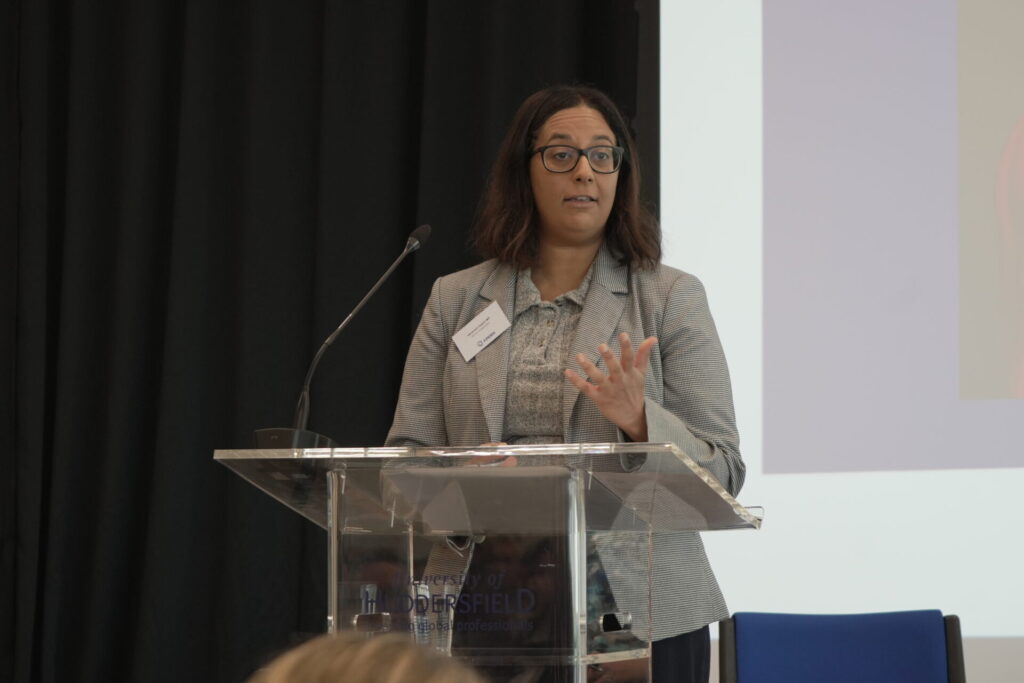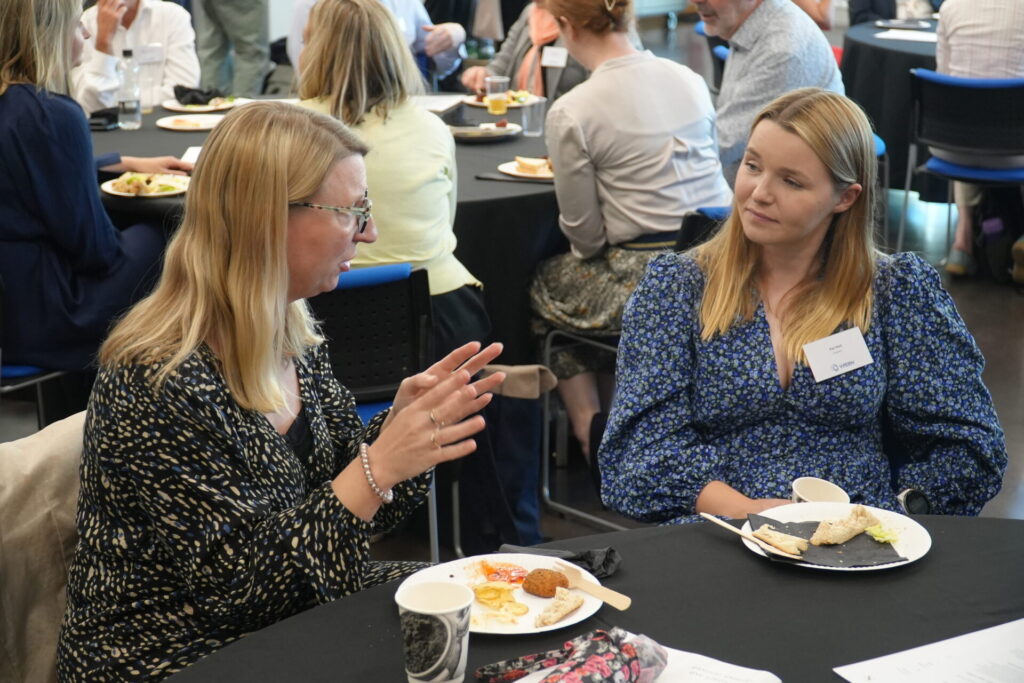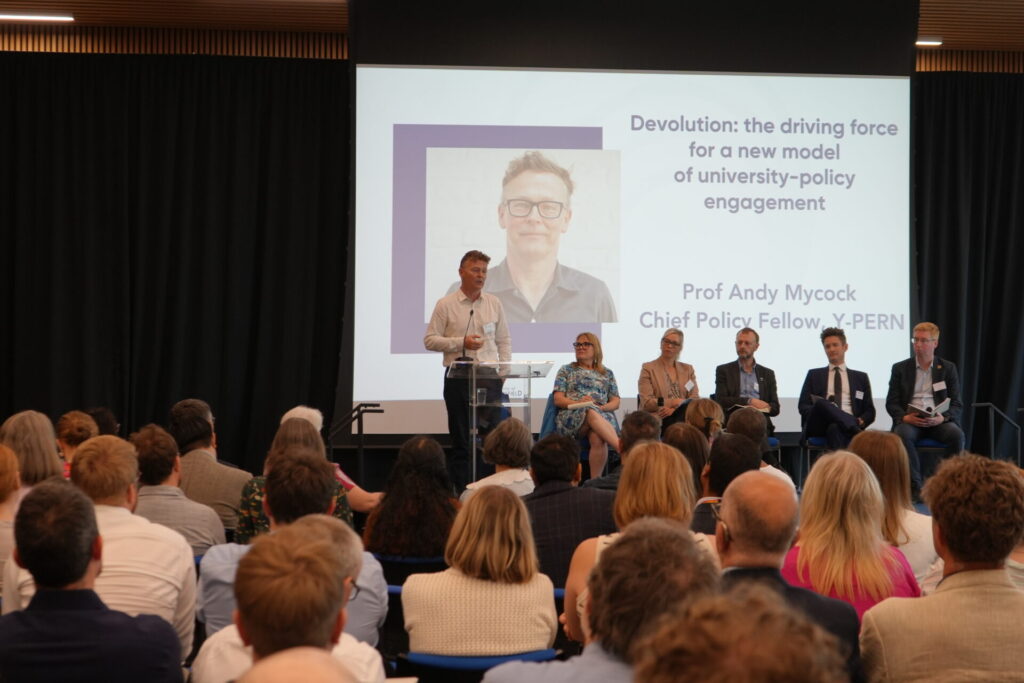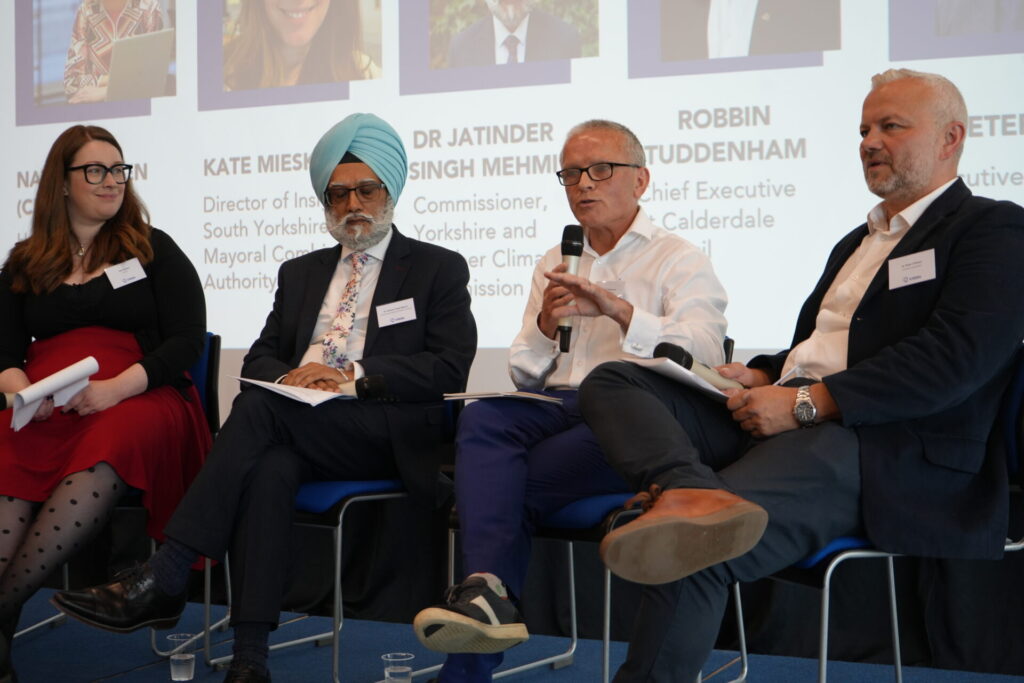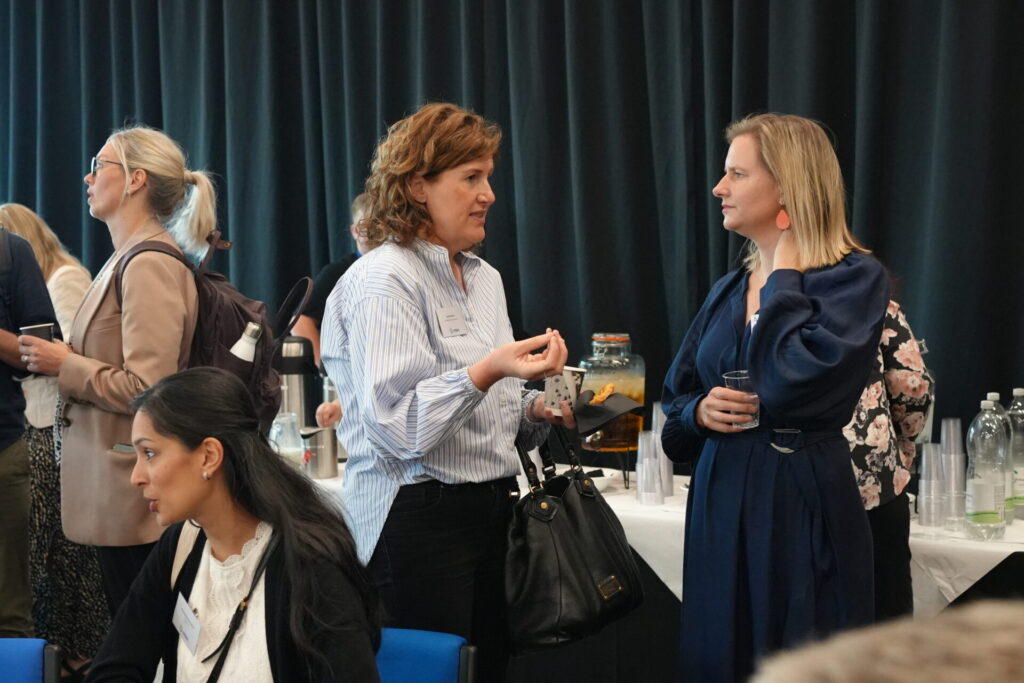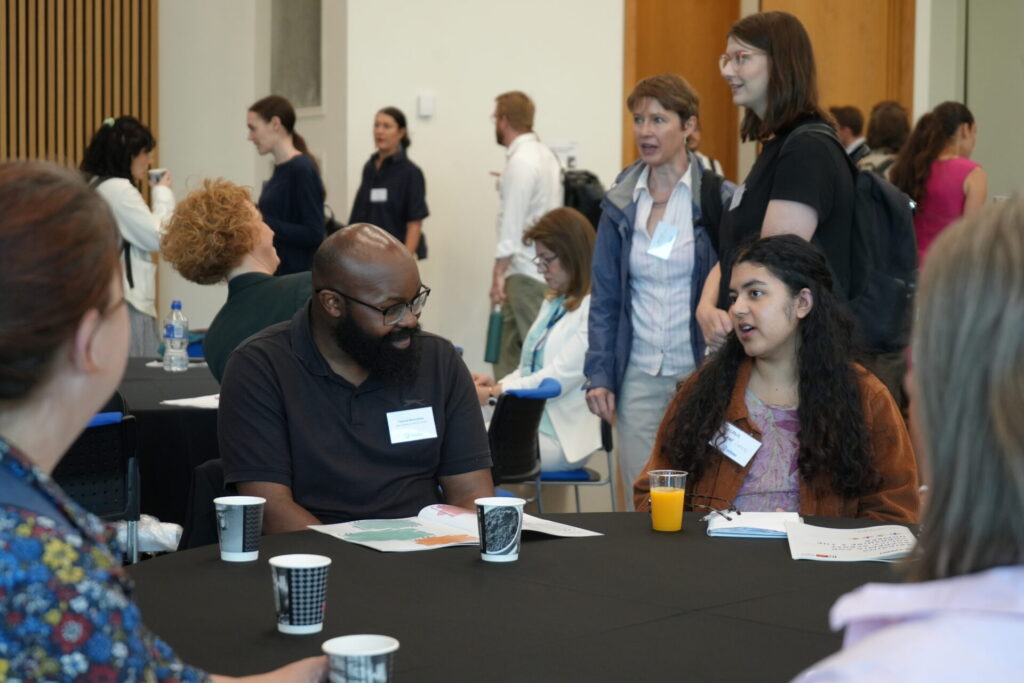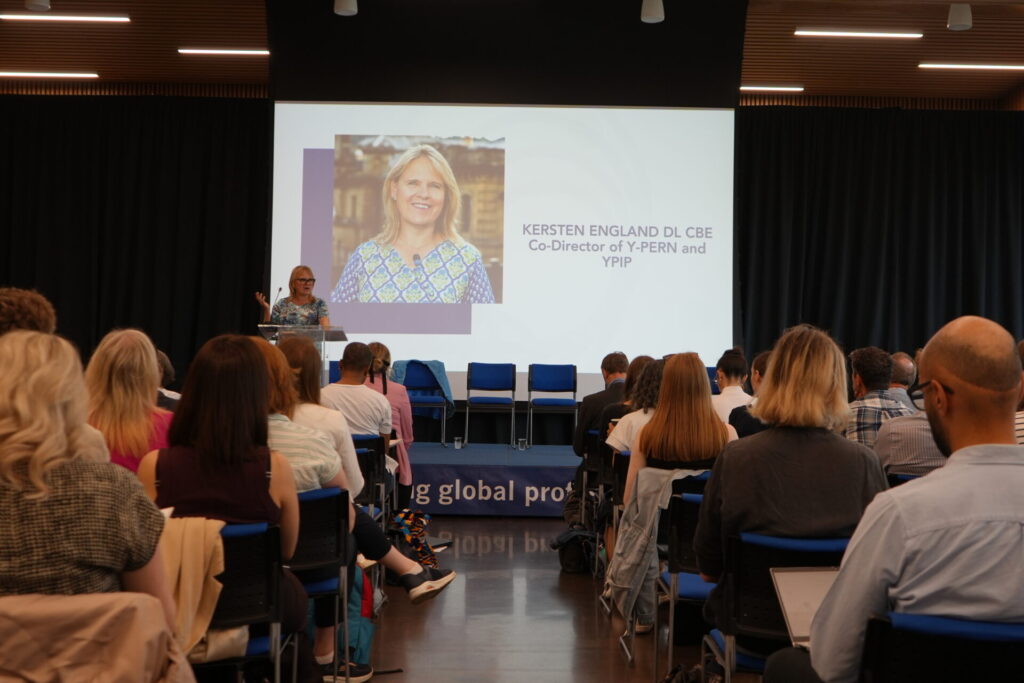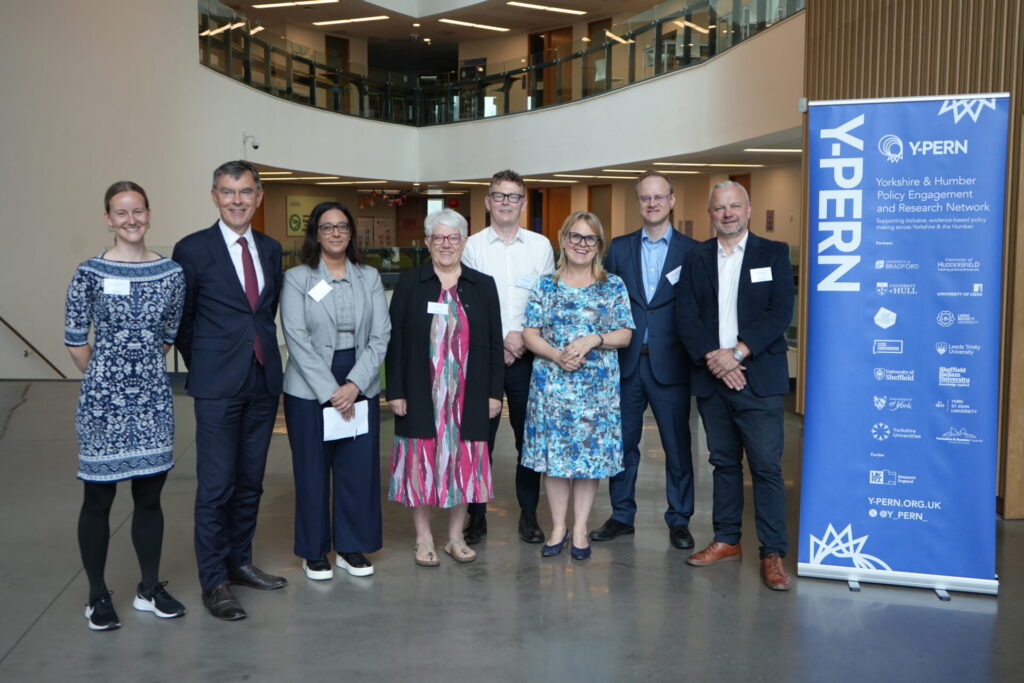In episode 2 of Gerrin’ On Wi’ It, Andy Mycock talks with Dr Peter O’Brien, Executive Director of Yorkshire Universities, about how collaboration is shaping the future of Yorkshire and the Humber.
Peter reflects on the unique partnership between the region’s 12 universities, their work with local and combined authorities, and the remarkable journey since signing the 2021 Memorandum of Understanding which laid the groundwork for major initiatives like the Yorkshire and Humber Policy and Engagement Network (Y-PERN) and the Yorkshire Policy Innovation Partnership (YPIP). Peter identifies that the diverse landscape of Yorkshire is bound together by a strong sense of identity which creates a basis for shared purpose and shared agendas.
Together they discuss what effective collaboration looks like, why trust and communication matter, and how shared regional identity helps Yorkshire speak with one voice.
Peter also looks ahead to the challenges and opportunities for the sector, including sustaining this work, strengthening connections with communities and policymakers, and ensuring universities continue to play a meaningful civic role in the region.
About the Podcast
“Gerrin’ on wi’ it” is a podcast series brought to you by YPIP, Y-PERN and the Leeds University Business school’s Research and Innovation podcast about collaboration in Yorkshire and the Humber which showcases the people, partnerships, and ideas driving collaborative change across the region. The title – a Yorkshire phrase meaning “getting on with it” – captures the spirit of practical, no-nonsense collaboration that characterises the region’s approach to tackling complex challenges.
Hosted by Dr Andy Mycock and Paul Hayes, the series explores how universities, local authorities, combined authorities, and communities work together to address shared priorities – from economic growth and early years education to community wellbeing and regional development. At its heart, the podcast tells the story of Yorkshire and the Humber as England’s trailblazer for academic-policy engagement.
Find out more about the series here
Get Involved
Listen to “Gerrin’ on wi’ it” on Soundcloud below or on Apple Podcasts and Spotify.
Transcripts of all episodes are available. Download the transcript for this episode here
If you would like to discuss an appearance on our podcast, please get in touch.



